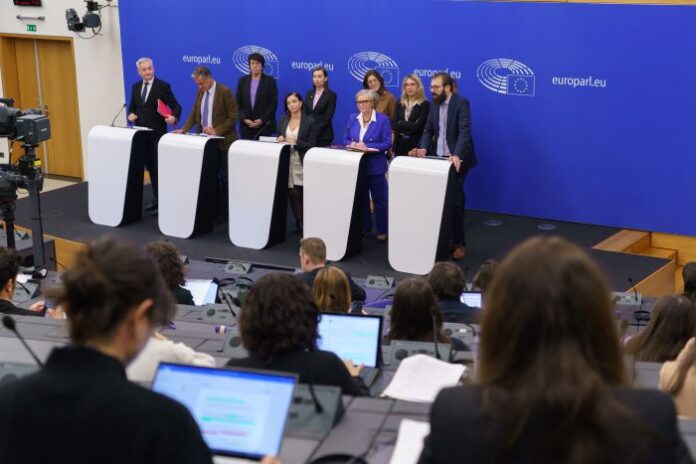EU legislators reached a provisional deal on rules to combat gender-based violence and protect its victims, especially women and victims of domestic violence.
The informal agreement reached by Parliament and Council negotiators on Tuesday includes measures to prevent rape, stricter rules on cyber violence, and better support for victims. For the first time, there will be EU-wide rules on the criminalisation of certain forms of gender-based violence and better access to justice, protection and prevention. Member states will aim to raise awareness that non-consensual sex is considered a criminal offence.
The new legislation will also include a longer list of aggravating circumstances for offences, including crimes against a public figure, journalist or human rights defender, intent to punish victims for their sexual orientation, gender, skin colour, religion, social origin or political beliefs, and intention to preserve or restore “honour”.
In addition, it will adopt rules against female genital mutilation and forced marriage, specific regulations for online crimes, including the release of intimate material and cyberflashing, improved procedures for victims’ safety and health, taking into account intersectional discrimination and access to healthcare, including sexual and reproductive healthcare services, and enhanced reporting and evidence gathering by authorities.
On Parliament’s insistence, the Commission will report on whether the rules should be revised every five years.
Rapporteur Frances Fitzgerald (EPP, Ireland) said: “For the first time, the European Union sends a clear message that we take violence against women seriously as an existential threat to our security. Together, nearly 450 million people and three institutions say that we will not stand for it. While this Directive does not address everything that Parliament would wish to, including an offence of rape based on a lack of consent, it does make important strides on prevention, protection and prosecution. Today, we take the first step towards making Europe the first continent in the world to eradicate violence against women.”
Evin Incir (S&D, Sweden) said: “This agreement is a catalyst for positive change, a commitment to continuously improve, and shows our collective responsibility to combat violence against women. But our fight is far from over. I am very disappointed that some member states chose to stand on the wrong side of history and block the inclusion of a consent based rape legislation. Yet I maintain hope that by fostering a cultural shift around consent in Europe, we can pave the way for the legislation to be adopted in the future. We will persist fighting for women’s rights until societal change is unmistakable.”
Parliament and Council will have to approve the agreement formally. The new rules will come into force twenty days after their publication in the EU Official Journal, and member states have three years to implement the provisions.

